
Table of Contents
Scholarships
The Bank funds and implements its scholarship programmers as part of its overall efforts to develop the human resources of its member countries and those of the Muslim communities in non-member countries.
Read More : Facts About International Students In Turkey – 2021

There are six scholarship programmes offered by IsDB:
- Undergraduate
- Master’s
- PhD and Post-Doctoral Research Programme
- IsDB-ISFD for Technical Vocational Education & Training (TVET) for 21 Least Developed Member Countries (LDMCs): Afghanistan, Bangladesh, Benin, Burkina Faso, Chad, Comoros, Djibouti, The Gambia, Guinea, Guinea-Bissau, Mali, Mauritania, Mozambique, Niger, Senegal, Sierra Leone, Somali, Sudan, Togo, Uganda and Yemen
- IsDB-ISFD Bachelor studies for 21 LDMCs as mentioned in No. 4 above
- IsDB-The World Academy of Science (TWAS) Joint Programme for Capacity Building and Technology Transfer
Objective – Scholarships
The Programmes are important parts of the developmental initiatives led by the Bank since 1983 to foster technology and knowledge sharing among its member countries and Muslim communities in non-member countries. They are designed to attract talented male and female students and in order to build the right competencies required with a special focus on sustainability sciences to empower communities and to assist them in achieving their national and global development plans including the Sustainable Development Goals (SDGs). The motto is to develop the students/researchers as Good Citizens & Competent Professionals (GCCPs).
Concept – Scholarships
The IsDB Scholarship Programme is more than just a scholarship programme in the traditional sense of a straight financial assistance to the outstanding and qualified students. It is also a tool for the improvement of the socio-economic conditions of the Member Countries and Muslim communities.It is basically a scholarship programme and a development programme at the same time, since the scholarship is given as an interest-free-loan (Qard Hasan) to the students and as a grant to their communities /countries to which they belong.
The students are required to fulfil the obligations detailed, under each programme, after graduation and gainful employment. Besides, the students are also required to take part in the development of their communities/countries, through their respective professions. The repaid fund will be used to provide scholarships to other students from the same community/country to complement the IsDB Programme and to ensure its continuity in the long run, while the community development services rendered by the students and graduates will contribute to the overall development of the community/country.
The IsDB also expects its students to play a leading role in assisting the development of their communities/countries. In other words, the IsDB aims to produce Good Citizens and Competent Professionals (GCCPs).
All the above features and measures are linked together in an integrated manner to constitute the basic concepts that characterize the IsDB Scholarship Programme as a “Distinct Community-Oriented Development Programme”.
Schedule of Activities – Scholarships
Every year, the Programme is formally announced (through the IsDB Scholarship Platform) in December, for next September/October intake each year. The results implementation of the Programmes follows the following cycle:
| Programme Cycle | December | January | February | March | April | May | June | July | August | September |
| Submission of Applications | ||||||||||
| In-house/External Review of Applications | ||||||||||
| Selection Committees’ Meetings | ||||||||||
| Announcement of Result | ||||||||||
| Placement of Students |
Selection Procedures – Scholarships
The review and selection process are undertaken by two Independent International Selection Committees, composed of academicians and chaired by the Senior Advisor to the IsDB President for Science, Technology and Innovation. These Committees assess the applicants’ qualifications and eligibility requirements and ascertains the scientific and development relevance of their proposed fields of study / research proposal. Recommendation for final selection is made by these Committees and selection of candidates is approved by the IsDB management whose decision is final.
Note: Getting admission or being registered in a university does not mean automatic selection and is not a requirement for application. The final decision on place of study is made by the selection committees of the IsDB Scholarship Programmes.
Place of Study– Scholarships
Consistent with the concept of the Programme, theadmission is solely the responsibility of the student. Selected students must obtain admission from one of the top 10 public/government universities in their own countries.
Check the ranking of Universities.
Meanwhile, for some students who could not secure admission in their own countries, due to any unavoidable situation, the IsDB may seek admission in member countries having agreement with the IsDB. The final decision of the admission of any student under these agreements is subject to the acceptance by the respective universities in these countries.
Partnership Programmers Scholarships
To scale-up the programmes to support capacity building efforts in Member Countries (MCs) and Muslim communities in non-member countries, through the provision of scholarships to most qualified scholars to pursue higher education in most needed and advanced fields in reputable universities across the world, the Bank has fostered partnerships with top reputable universities, Ministries of Higher Education and Government institutions in member countries, and International Development Institutions.
The partnership programme includes University of Cambridge, Oxford University, and Queen Mary University of London in the United Kingdom, McGill University in Canada, Moroccan Agency for International Cooperation in Morocco, The Presidency For Turks Abroad and Related Communities (YTB) and Council of Higher Education (YOK) in Turkey, Campus France in France and National University of Uzbekistan & Tashkent University of Information Technologies in Uzbekistan.
Thanks to all these partners for their kind support and contribution to building future leaders to champion this move in all sectors development and creating a global village for achieving sustainable development goals.
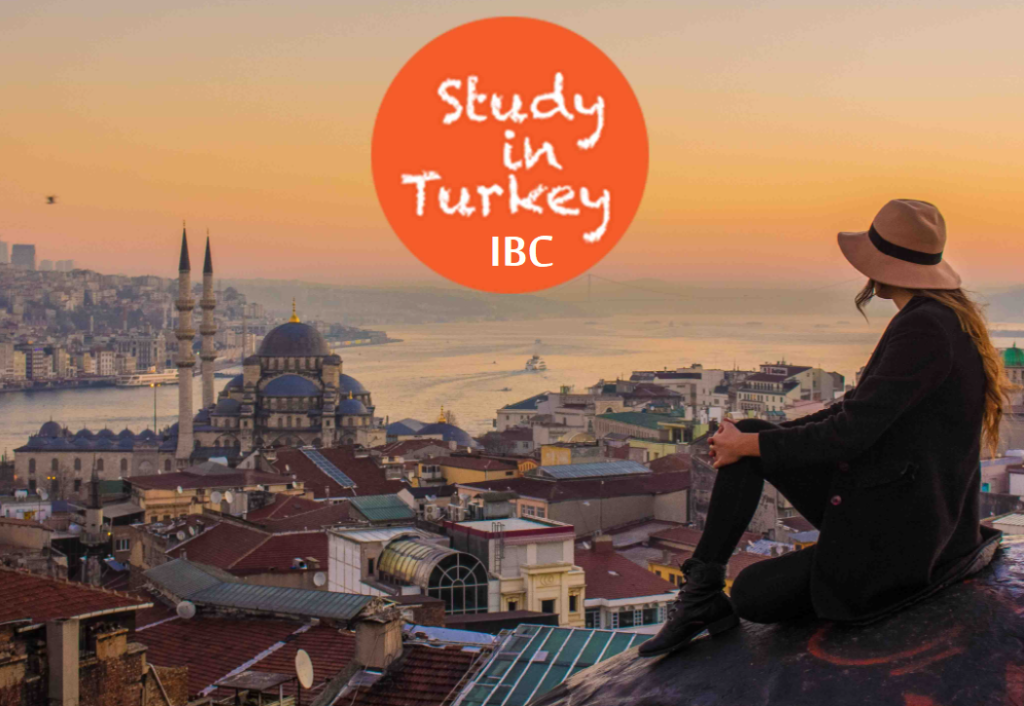
Alumni Platform – Scholarships
In line with the IsDB New Business Model, the Scholarship Programme is set into transformation phase, which uses the model of Management for Development Results, with a focus on Outcome, an Alumni Platform for the graduates is under construction to play a vital role in promoting the development of Knowledge-Based Economy in the IsDB member countries as well as in the Muslim Communities in non-member countries.
This platform will be bringing all the graduates together through a network for their interaction, professional development and exchange of ideas on implementing new projects leading to economic growth in their countries. Furthermore, this platform will also enable the Bank to reach-out the graduates and invite them to participate, among others, in an annual call for innovation through the Engage Platform and Transform Fund. The winning graduates will receive a start-up funding to translate their innovative ideas into development solution and possible commercialization.
Undergraduate Scholarship Programme
Introduction – Scholarships
The Programme was launched in 1983 with the objective to provide educational opportunities to the academically meritorious young students from IsDB Member Countries (MCs) and Muslim communities in non-member countries to pursue undergraduate or first-degree study and to train them in specific fields in order to improve their socio-economic conditions and make a meaningful contribution to the development of their communities and countries.
The objective of this Programme is to assist the MCs and Muslim Communities in non-member countries in the development of their human capitals specially in fields that are both relevant and important for their development.
Eligibility Criteria
The Programme is open for academically meritorious students with strong desire to engage in social services and community development after graduation. Candidates MUST ensure that they meet all the criteria of the programme listed hereunder, failing which the Application will not be considered:
- Must be a citizen of any of the IsDB member countries or Muslim communities in non-member countries.
- Candidate from non-member countries must be a Muslim.
- Must have obtained a high school diploma or registered in one of the top 10 public/government universities in his/her own country.
- Must have minimum of 70% in his/her high school final GPA.
- Must choose a field of study listed among the approved disciplines of the programme.
- Must provide evidence of language proficiency in university medium of instruction as relevant. The language proficiency must be supported by a document or certificate, e.g., for English, by a recognized language certificate such as TOEFL, IELTS or passed required level test conducted such as by British Council or equivalent system in French or other language).
- Must provide certified English or French translation of all documents in case if they are initially in other languages.
- Must not be in receipt of any other scholarship at the time of application and during study.
- Must be medically fit and willing to undergo medical tests after selection.
Fields of Study– Scholarships
Eligible candidate must apply to pursue Undergraduate Studies in one of the fields of study as shown in the left column as below:
| Fields of study | Potential Specializations at Postgraduate Studies |
| Medicine, Dentistry, Pharmacy, Nursing, Medical Laboratories, Microbiology, Public Health, Nutrition, Health Services Management, Bio-Medicine, Medical Technology, Veterinary, Chemistry, Biology, Bio-Technology and related fields. | Health |
| Engineering: Civil, Mechanical, Chemical, Electrical, Surveying, Urban Planning, | Sustainable CitiesInnovation & Infrastructure DevelopmentWaste Management |
| Agriculture and Forestry | Sustainable Agriculture |
| Industrial Technologies | Plastic pollution and Micro-plasticsGreen ChemistryResponsible Growth |
| Physics, Geology and related fields | Energy |
| Computer Science, Information Technology, Telecommunication, and Electronics and related fields | ICT for Development |
| Natural Resources, Marine Sciences | BiodiversityClimate ChangeWater and Hygiene |
| Law, Media & Journalism, Political Sciences, Entrepreneurships and Trade & Commerce | Development-relatedSocial Sciences |
| Economics | Islamic EconomicsFinance and Banking |
| Statistics, Demography Econometrics, and Social Studies | Population Growth |
| Education, Psychology and Learning, Education Policy and International Development | EducationEducation for Sustainable Development |
Master Scholarship- Scholarships
Introduction
The Programme was launched in 1998 with an objective to assist IsDB member countries and Muslim communities in non-member countries in the development of their human capitals specially in development related areas relevant to Sustainability Sciences that are both relevant and important for their development and specifically:
- To increase the number of intermediate level manpower, which is necessary for an effective technology development, transfer and maintenance.
- To increase access to the educational opportunities available under the IsDB initiatives in human capitals development by creating a special programme suited to their circumstances and needs.
- To enhance the ability of students to participate in the IsDB PhD Programme.
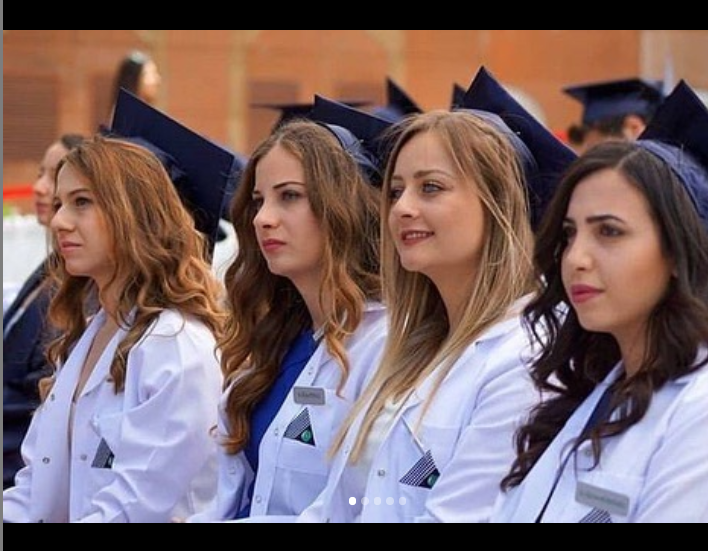
Eligibility Criteria
The Programme is open for academically meritorious students and mid-career professionals from member countries and Muslim Communities in non-member countries. Candidates MUST ensure that they meet all the criteria of the programme listed hereunder, failing which the Application will not be considered:
- Must be a citizen of any of the IsDB member countries or Muslim communities in non-member countries.
- Candidate from non-member countries must be a Muslim.
- Must have minimum of 70% in his/her Bachelor studies’ GPA.
- Must choose a field of study listed among the approved disciplines of the programme.
- Must provide certified English or French translation of all documents in case if they are initially in other languages.
- Must provide evidence of language proficiency in university medium of instruction as relevant. The language proficiency must be supported by a document or certificate, e.g., for English, by a recognized language certificate such as TOEFL, IELTS or passed required level test conducted such as by British Council or equivalent system in French or other languages).
- Must not be in receipt of any other scholarship at the time of application and during study.
- Must be medically fit and willing to undergo medical tests after selection.
Fields of study
The eligible candidates may apply to study in one of the following fields of study only:
| Sustainable Agriculture | Food SecurityResilient CropsPostharvest Technologies |
| Education | Quality of Teaching,Pupil/Teacher RatioHigh Level Training |
| Education for Sustainable Development | Integration of Sustainability-related issues into national curricula and teaching syllabus documents |
| Climate Change | Strategies for Reductions of CO2 Emissions.Climate MitigationCarbon Sequestration Methods |
| Energy | Renewable EnergyGreen TechnologiesSolar PotentialHydrogen Fuel CellsBiogas and Biodiesel |
| Sustainable Cities | Insulation Technologies,Transportation,Urban Planning |
| Responsible Growth | Reduction of WasteServing CommunitiesEthics of Growth |
| Waste Management | RecyclingCarbon Footprint ReductionWaste to Energy Technologies |
| Population Growth | Urban Sprawl,Density and EpidemicsOvershoot |
| Green Chemistry | Alternative TechnologiesCutting-edge ResearchLimitation of Pollution |
| Biodiversity | Loss of BiodiversityEcosystem ServicesMass ExtinctionAgrobiodiversity |
| Plastic pollution and Micro-plastics | Plastic Incorporation into the Food ChainBiodegradable PlasticsRecycling Possibilities |
| Water and Hygiene | Water Purity and Availability,Sanitation and Quality |
| Health | MedicinePharmacyNutrition |
| ICT for Development | Computer ScienceLaser and Fiber OpticsTelecommunicationElectronics |
| Innovation & Infrastructure Development | Build Resilient InfrastructureInnovation and Industrial DevelopmentTechnological InfrastructureProduct Innovation |
| Islamic Economics, Finance and Banking | Mode & Services of Islamic Banking and FinanceSharia Standards for IFIsIslamic Insurance & TakafulIslamic Capital MarketSharia & Operational Aspects of SukukIslamic Micro-FinanceZakat ManagementAwqaf & Zakat Management |
| Development-related Social Sciences | International economics,JournalismLawIntellectual Property (IP)Political SciencesEntrepreneurshipsTrade and Commerce |
Benefits and Facilities
The programme covers the following items:
- Monthly stipend commensurate with the cost of living of the country of study.
- Tuition fees as charged by the university and approved by the IsDB.
- Cost of medical treatment at university/government/public hospitals.
- Economy class return air tickets (once at the time of joining and on completion of study) and installation allowance for the students selected to study abroad at partnered universities/countries.
- Thesis preparation Allowance.
Obligations
Candidates granted the Scholarship are expected to:
- Sign the IsDB’s prescribed Scholarship Agreement stating their commitment to their studies and to serve his/her communities and countries upon graduation.
- Devote themselves to their studies on a full-time basis without interruption and provide the IsDB with progress reports on their studies on a regular basis.
- Not to seek or accept other scholarship or remunerated work during their study under the Programme.
- Respect the laws of the country of study and maintain good personal and professional conduct consistent with the rules, regulations and objectives of the Programme and the overall mission of the IsDB.
- Register and join the IsDB Alumni after graduation to network with other alumnus and keep updating the IsDB about their progress and achievements in their communities/countries.
- Refund 50% of the total amount spent on their study after graduation and securing gainful employment, in easy installments, to Local Education Trust Fund (LETF) established by the IsDB in their countries.
Istanbul Business Center can provide you with academic advice and support
You can apply for the scholarship through the following link:
PhD and Post-Doctoral Research Programme
Introduction
The Programme was launched with the objective to produce technically qualified human resources in the IsDB member countries and Muslim Communities in non-member countries by providing scholarships to promising and outstanding scholars and researchers to undertake PhD studies and Post-Doctoral research in development related fields with a special focus on “Sustainability Science” and to achieve Sustainable Development Goals (SDGs) and the Presidency 5-Year Plan (P5P).
Concept
The concept of the Programme is based on the following:
- The Programme is designed to strengthen and enhance the scientific, technological and research capability and the potential of scholars, researchers, institutions and countries in order to meet the national needs in the area of science and technology to improve their socio-economic conditions.
- It is a scholarship programme and a development programme at the same time, since the scholars are required to play a leading role in assisting the development of their communities and countries after completion of their studies.
- The Programme offers scholarships leading to a full-time Ph.D. degree (three years maximum) and Post-doctoral research (one year maximum).
- The scholarship is awarded as an interest-free loan (Qard Hasan) to the scholars but grant to their communities/countries.The beneficiaries are required to refund 50% of the loan after graduation and securing gainful employment, to a Local Education Trust Fund (LETF) established in each member country benefiting from the Programme. The collected amounts are to be recycled in new scholarships offered to students from the same country.
- After completion of research, the scholars are required to take part in the development of their communities/countries, through their respective professions, while the community development services rendered by the graduates will contribute to the overall development of their communities/countries.
Eligibility Criteria
The Programme is designed to help promising and outstanding scholars from member countries and Muslim communities in non-member countries who meet the following criteria:
1. PhD study
- Have Master’s degree in one of the fields of study of the programme.
- Have minimum (“Very Good”) academic standing;
- Preferably have work and/or research experience.
- Have a research proposal in one of the fields of study of the programme stating its scientific and development relevance to the community / country.
- Be medically fit and be willing to undergo medical tests after selection.
2. Post-doctoral research
- Have PhD degree in one of approved fields of the programme.
- Have minimum (“Very Good”) academic standing.
- Have not less than two (2) years of experience in the field of research.
- Must have a record of publications/research in the same field.
- Have a research proposal in one of the fields of study of the programme stating its scientific and development relevance to the community / country.
- Be medically fit and be willing to undergo medical tests after selection
Fields of study
The eligible candidates may apply to study one of the following fields of study only:
| Sustainable Agriculture | Food SecurityResilient CropsPostharvest Technologies |
| Education | Quality of TeachingPupil/Teacher RatioHigh Level Training |
| Education for Sustainable Development | Integration of Sustainability-related issues into national curricula and teaching syllabus documents |
| Climate Change | Strategies for Reductions of CO2 EmissionsClimate Mitigation Carbon Sequestration Methods |
| Energy | Renewable Energy and Green TechnologiesSolar Potential and Hydrogen Fuel CellsBiogas and Biodiesel |
| Sustainable Cities | Insulation TechnologiesTransportationUrban Planning |
| Responsible Growth | Reduction of WasteServing CommunitiesEthics of Growth |
| Waste Management | RecyclingCarbon Footprint ReductionWaste to Energy Technologies |
| Population Growth | Urban SprawlDensity and EpidemicsOvershoot |
| Green Chemistry | Alternative TechnologiesCutting-edge ResearchLimitation of Pollution |
| Biodiversity | Loss of BiodiversityEcosystem ServicesMass Extinction, Agrobiodiversity |
| Plastic pollution and Micro-plastics | Plastic Incorporation into the Food ChainBiodegradable PlasticsRecycling Possibilities |
| Water and Hygiene | Water Purity and AvailabilitySanitation and Quality |
| Health | MedicinePharmacyNutrition. |
| ICT for Development | Computer Science, Laser and Fiber OpticsTelecommunicationElectronics |
| Innovation & Infrastructure Development | Build Resilient Infrastructure,Innovation and Industrial DevelopmentTechnological InfrastructureProduct Innovation |
| Islamic Economics, Finance and Banking | Mode & Services of Islamic Banking and Finance, Sharia Standards for IFIs, Islamic Insurance & Takaful, Islamic Capital MarketSharia & Operational Aspects of Sukuk, Islamic Micro-Finance,Zakat Management, Awqaf & Zakat Management. |
| Development-related Social Sciences | International economics, JournalismLawIntellectual Property (IP)Political SciencesEntrepreneurshipsTrade and Commerce |
Benefits and Facilities
PhD study
The programme covers the following items:
- Monthly stipend commensurate with the cost of living of the country of study;
- Tuition fees, if any, subject to IsDB’s approval;
- Cost of medical treatment at university/government hospital.
- Economy class return air tickets (once at the time of joining and on completion of study) and installation and equipment allowance for the students selected to study abroad at partnered universities/countries.
- Thesis preparation allowance
- Scientific papers’ preparation allowance
Post-doctoral research
The programme covers the following items:
- Monthly stipend commensurate with the cost of living of the country of study;
- Cost of medical treatment at university/government hospital.
- Economy class return air tickets (once at the time of joining and on completion of study) and installation and equipment allowance for the students selected to study abroad at partnered universities/countries.
- Scientific papers’ preparation allowance
Place of Study
Consistent with the concept of the Programme, selected scholars must obtain admission/invitation from one of the reputable public universities in their own countries listed among the top (10) universities as per the Shanghai and Times Higher Education University ranking.
Admission may also be sought at one of the universities having agreement with the IsDB, i.e. Cambridge University, Queen Mary University of London and Oxford in UK, McGill University in Canada, Copenhagen University in Denmark, National University of Uzbekistan and Tashkent University of Information Technology in Uzbekistan and Top universities in Malaysia, Turkey, Tunisia, Morocco, National University of Uzbekistan and Tashkent University of Information Technologies
Note: Getting admission does not mean automatic selection and is not a requirement for application. The final decision on place of study is made by the selection committee.
Obligations
Candidates granted the Scholarship are expected to:
- Sign the IsDB’s prescribed Scholarship Agreement stating their commitment to their studies and serve their communities and countries upon graduation;
- Devote themselves to their studies on a full-time basis and without interruption and provide the IsDB with progress reports on their studies on a regular basis;
- Not to seek or accept other scholarship or remunerated work during their study under the Programme;
- Respect the laws of the country of study and maintain good personal and professional conduct consistent with the rules, regulations and objectives of the Programme and the overall mission of the IsDB;
- Register and join the IsDB Alumni after graduation to network with other alumnus and keep updating the IsDB about their progress and achievements in their communities/countries.
- Refund 50% of the loan after graduation and securing gainful employment, in easy installments, to Local Education Trust Fund (LETF) established by the IsDB in their countries.
Selection Process
The review and selection process are undertaken by an independent International Selection Committee, composed of academicians and chaired by the Senior Advisor to the IsDB President for Science, Technology and Innovation.
The Selection Committee assesses the applicants’ qualifications and eligibility requirements and ascertains the scientific and development relevance of the proposed fields of study. Recommendation for final selection is made by the committee and final selection is approved by the IsDB management whose decision is final.
For More information :
Mobile: 00905340789498 – Whatsapp + Viber
For Arabic website :
– مركز أعمال اسطنبول (istanbulbc.com)
our YouTube video :
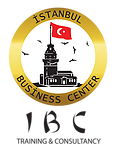
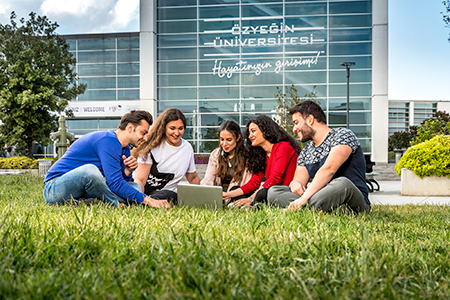 Özyeğin University – One of The Best Universities in Turkey 2021 2022
Özyeğin University – One of The Best Universities in Turkey 2021 2022 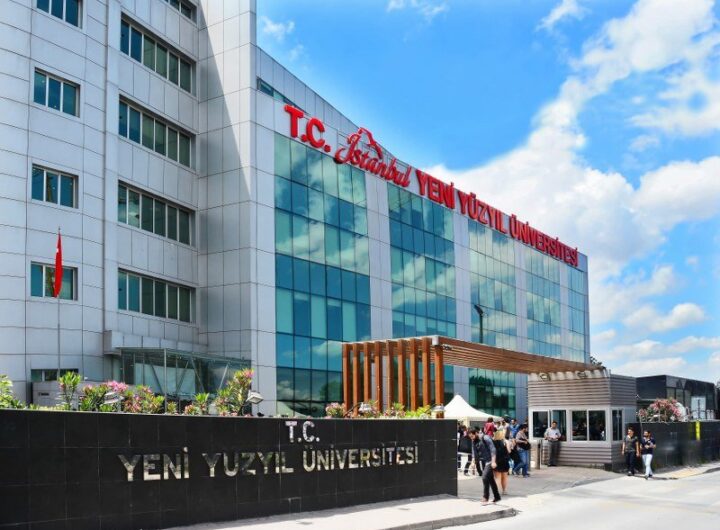 Istanbul Yeni Yüzyıl University – One of The Best Universities in Turkey 2021 2022
Istanbul Yeni Yüzyıl University – One of The Best Universities in Turkey 2021 2022 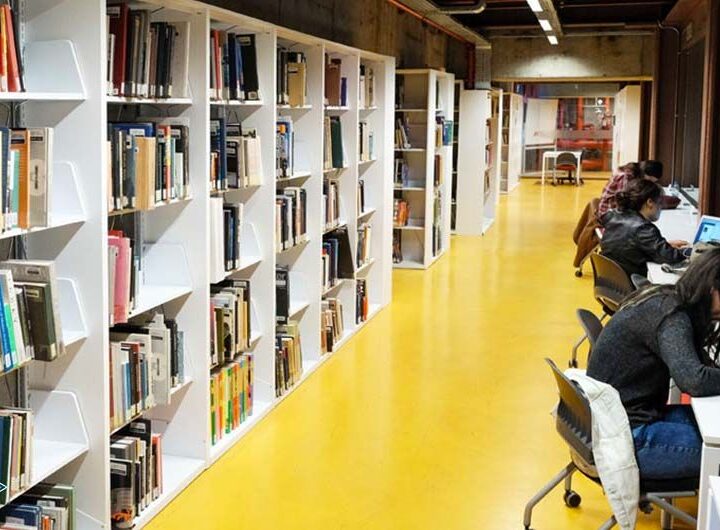 Istanbul Kent University – One of The Best Universities in Turkey 2021 2022
Istanbul Kent University – One of The Best Universities in Turkey 2021 2022 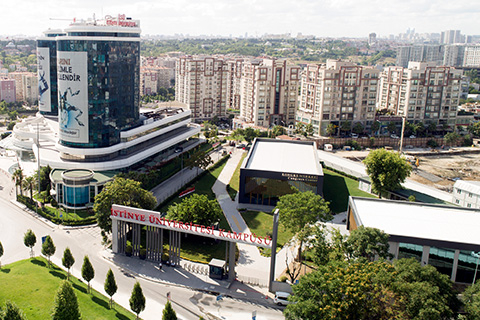 Istinye University – One of The Best Universities in Turkey 2021 2022
Istinye University – One of The Best Universities in Turkey 2021 2022  İstanbul Ayvansaray University – The most economical university in Istanbul 2021-2022
İstanbul Ayvansaray University – The most economical university in Istanbul 2021-2022 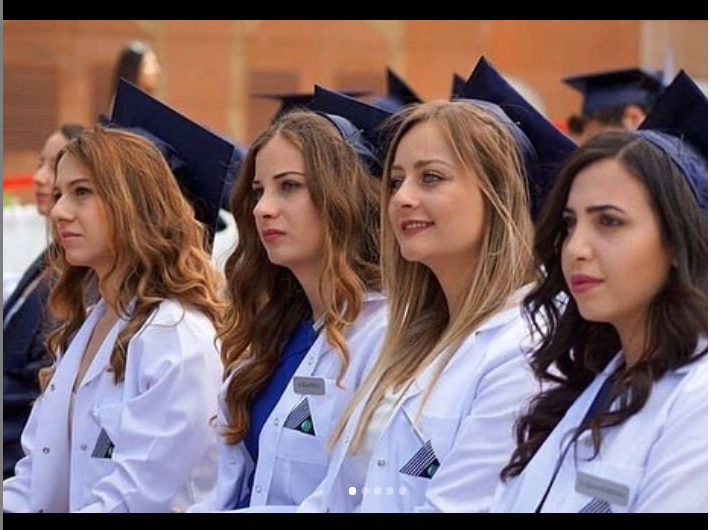 Yeditepe University – Register in universities with excellent rankings 2021- 2022
Yeditepe University – Register in universities with excellent rankings 2021- 2022  The Integrated Engineering Course in Oil and Gas – The best courses in Istanbul IBC25
The Integrated Engineering Course in Oil and Gas – The best courses in Istanbul IBC25  Logistics & Material Management – The best courses in Istanbul IBC40
Logistics & Material Management – The best courses in Istanbul IBC40  Warehousing And Materials Management – The Best 45-Training Course Istanbul
Warehousing And Materials Management – The Best 45-Training Course Istanbul